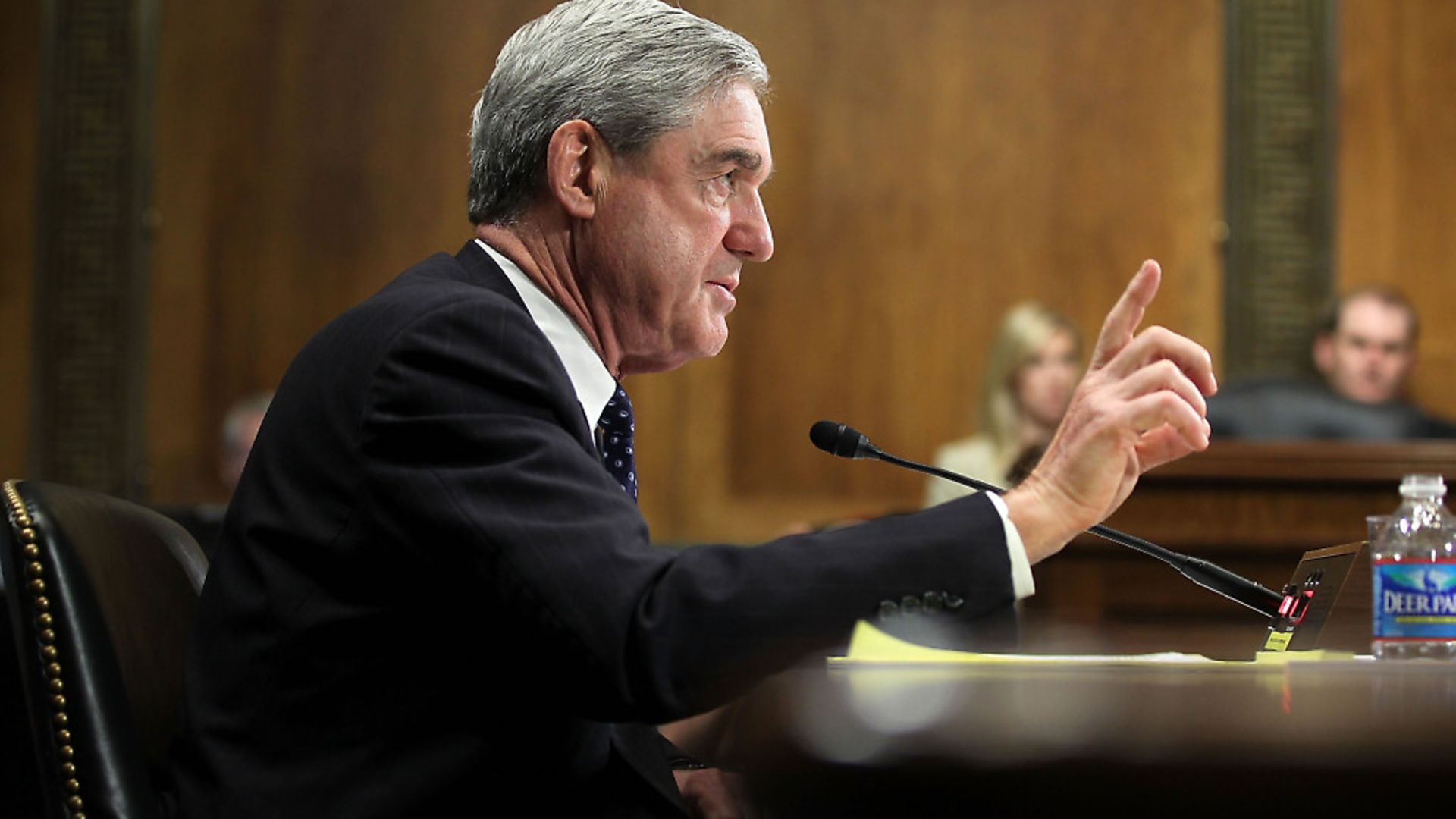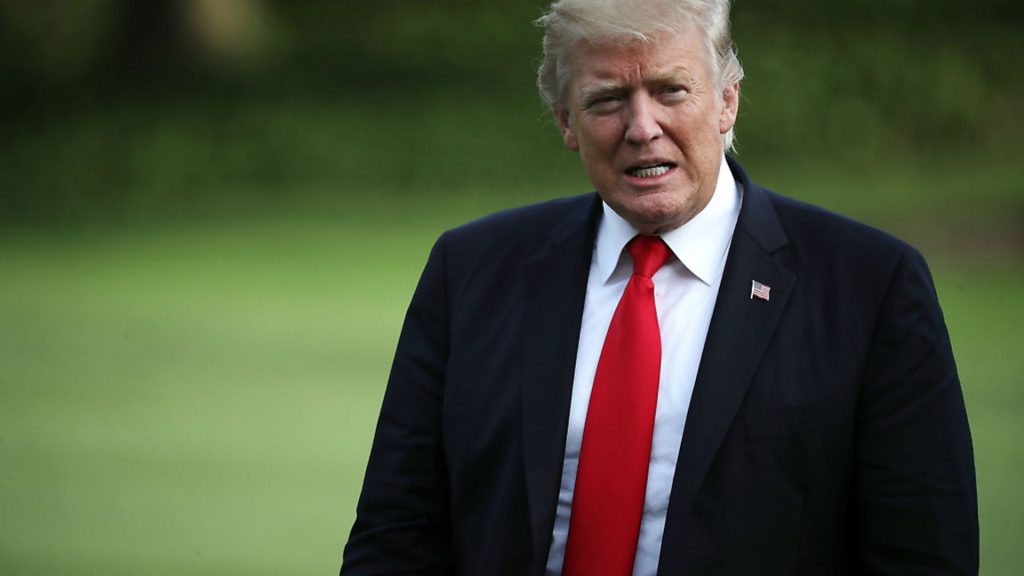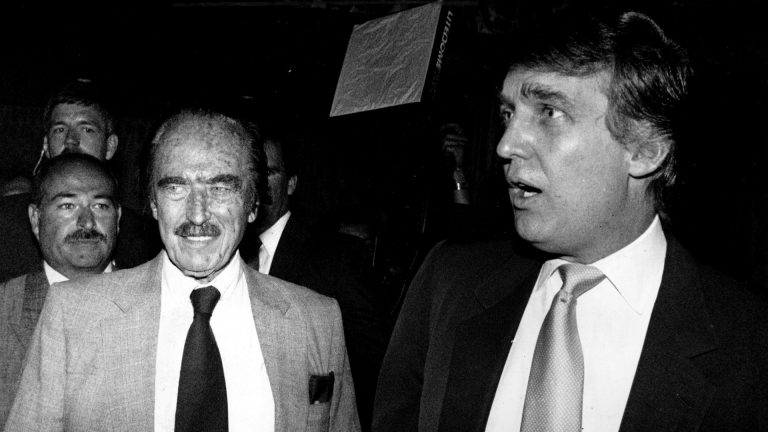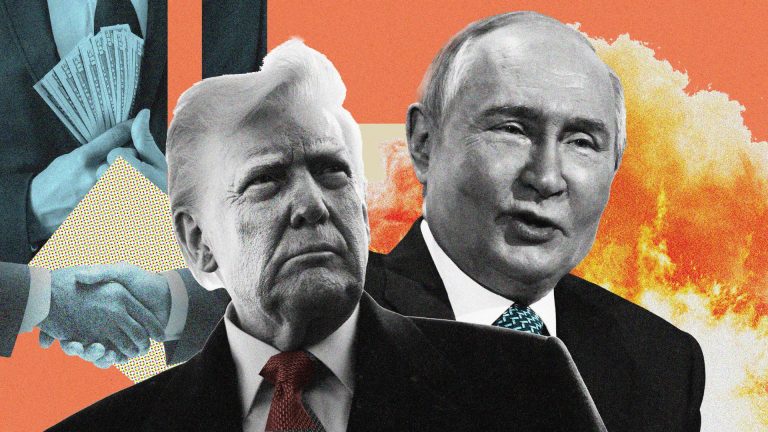
Paul Connew looks at Donald Trump’s refusal to be interviewed by Special Prosecutor Robert Mueller and the storm it could cause.

Let’s adopt the lexicon of the most profane POTUS ever to disgrace the White House. A s**tstorm cloud is gathering around Donald Trump just as he ‘celebrates’ the January 20, first anniversary of his bewildering, bombastic and utterly abnormal presidency.
But that particular vulgar dysphemism has nothing to do with bigoted ‘s**thole’ racism targeting the developing world, grotesque ‘grab their pussies’ misogyny or ‘some very fine people’ mitigation for far right, white nationalist, KKK-loving rioters at home.
It is the much bigger brewing s**tstorm stirred up by Special Prosecutor Robert Mueller’s anticipated formal request to interview the president himself, as the key dynamic of his escalating Russian Connection criminal investigation.
The request confronts Donald Trump with the greatest political and legal peril of his life; a far more realistic and forensic threat to his presidency than the debate around his mental state, foul-mouthed rhetoric and nebulous talk of invoking Article 25 of the US Constitution, under which a Cabinet can remove a POTUS considered unfit for office.
A string of tricky, high-risk questions are being anticipated, reviewed and argued over in private among the legal brains assembled for the defence of the president.
Among them:
n How damaging would a refusal to be interviewed at all turn out?
n Could they insist on the questioning being conducted via written exchanges without exposing a volatile, loose-lipped, narcissistic POTUS to a face-to-face encounter with Mueller?
n How much could they dictate the scale and scope of the questions and whether they stretch beyond Russian election meddling and the firing of former FBI chief James Comey and into the realm of the Trump family’s business history?
n Could the president be compelled to give his evidence under oath, thus potentially opening the door to a future perjury charge if he made any false statements?
n Would a POTUS invoking the right to the Fifth Amendment against self-incrimination prove politically fatal?
It explains why Trump’s lawyers do at least seem to be agreed on one tactic: let’s make the negotiations as complex and protracted as possible, meaning that the melodrama of Mueller’s interview – if it takes place at all – will be weeks, if not months away. Indeed, some pro-Trump Republicans are arguing behind closed doors that the interview should be delayed until after November’s mid-term elections, on the grounds that it could prejudice the election process.
It also explains why there has been a significant shift in Trump’s position this week. Challenged on whether he would be willing to speak to Mueller under oath, the president now refuses to commit himself, saying only: ‘I’ll speak to the attorneys.’
Last June, Trump insisted he was ‘eager’ and ‘100% willing’ to be interviewed under oath by Mueller in order to ‘shutdown’ the ‘fake news witch hunt’.
Only last Saturday, at the Camp David presidential retreat, he told reporters: ‘It’s sort of like, when you’ve done nothing wrong, let’s be open and get it over with.’ But the president then changed his tune after several phone conversations with members of his legal team.
Legal depositions in writing, rather than the trickier test of testifying under oath, have long been familiar territory for Trump, the flamboyant, controversial New York business tycoon, of course.
He has boasted of testifying more than 100 times in thousands of lawsuits – although a Washington Post study has shown he has also made many unsubstantiated and exaggerated claims during legal depositions.
But his past record in civil cases is not what is troubling his lawyers. It is already becoming clear that Mueller wants to quiz the president under oath about the two themes dominating his inquiry: possible collusion between the Trump campaign and Moscow during the election campaign; plus the ‘obstruction of justice’ issue sparked by the sacking of James Comey as FBI boss.
The president would face intense questioning over what he knew and when, before firing his national security adviser and close campaign confidant General Michael Flynn over his own Russian connections. The fact that the general has now pleaded guilty and is collaborating with the special prosecutor could prove a hidden trapdoor for Trump personally.
Similarly, Mueller is seeking to ask the president under oath about what and when he knew concerning the notorious 2016 Trump Tower meeting with Russians, organised by Donald Trump Jnr to hear ‘dirt’ being offered on Hillary Clinton, and also attended by the president’s son-in-law and senior adviser Jared Kushner and the already-indicted campaign manager Paul Manafort.
Trump Snr would inevitably face awkward questions about his role in personally helping to dictate a now-discredited statement on behalf of his son, claiming a different reason for the meeting.
Only four US presidents have ever been questioned under oath, most recently, Bill Clinton over the Monica Lewinsky scandal in 1998. Clinton had little choice, because he faced impeachment on charges of obstruction of justice and perjury by a Republican-controlled Capitol Hill, with the GOP holding both the upper and lower houses of Congress.
In Trump’s case, the fact that the GOP again control both houses may well tempt his legal team to try and play hardball with Robert Mueller, safe in the knowledge that the Republican leadership would be unlikely to back Democrat-led impeachment calls.
The big question taxing the GOP political establishment, though, is how a Republican POTUS perceived to be ducking, diving, delaying and evading questioning by the Special Counsel would play with mid-term voters, especially with Trump’s approval ratings down to a record-low mid 30%, even before the ‘s**thole’ furore.
Whether the GOP backing the idea of a Mueller/Trump interview being pushed back until after the mid-terms would backfire electorally is seriously worrying some Republican campaign strategists. Similarly, they are concerned that efforts by pro-Trump, right-wing figures on Capitol Hill to discredit or kill off the Mueller investigation altogether are not playing well with moderate Republican voters.
Meanwhile, for Trump’s personal legal team, the ultimate Catch-22 dilemma is that, although the law is unclear on whether the Special Counsel could directly bring a criminal charge against a serving president, gambling on delaying an encounter with Mueller until after the mid-term elections could result in the Democrats wining control of Capitol Hill and moving swiftly to press the button marked impeachment.









